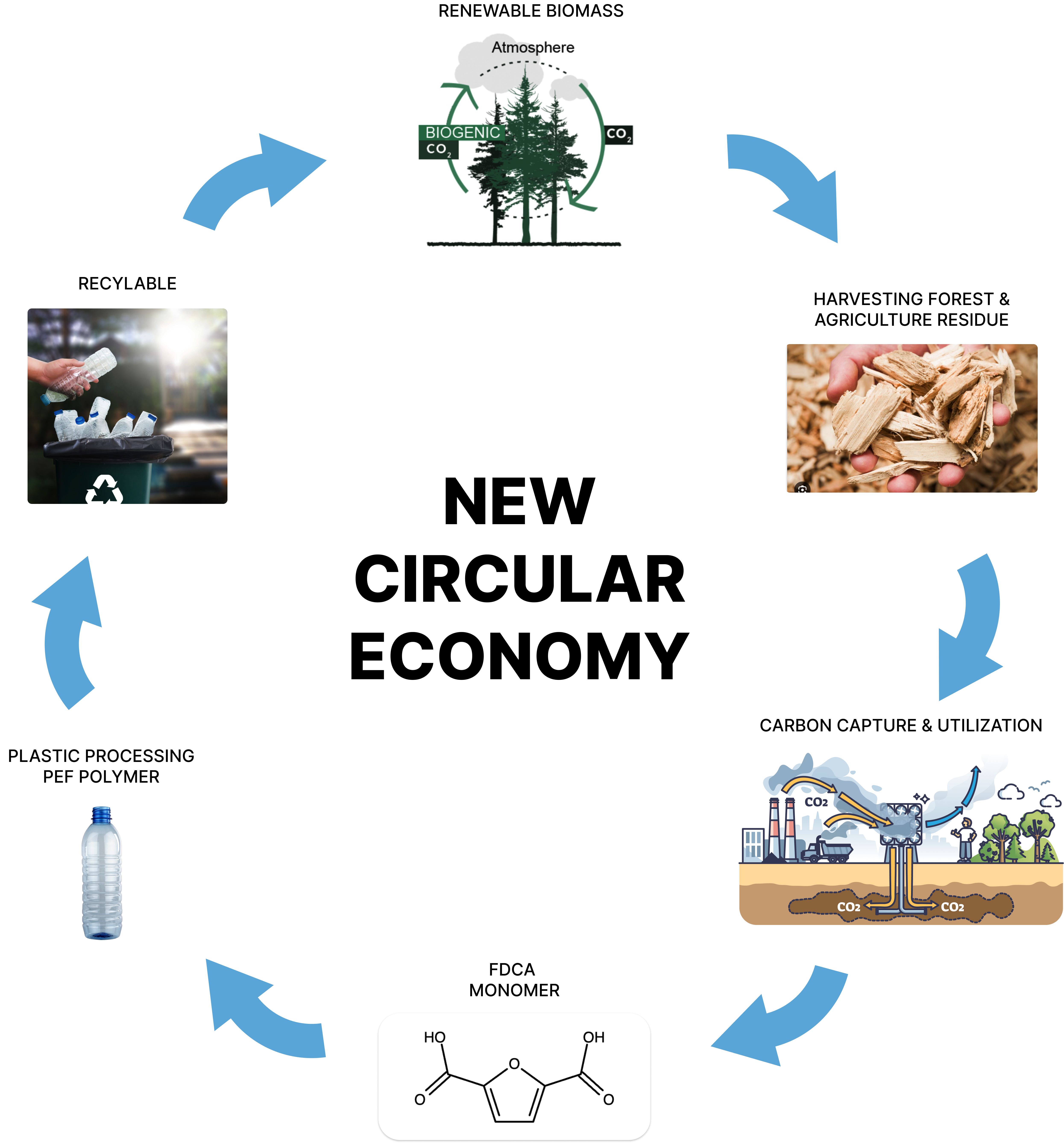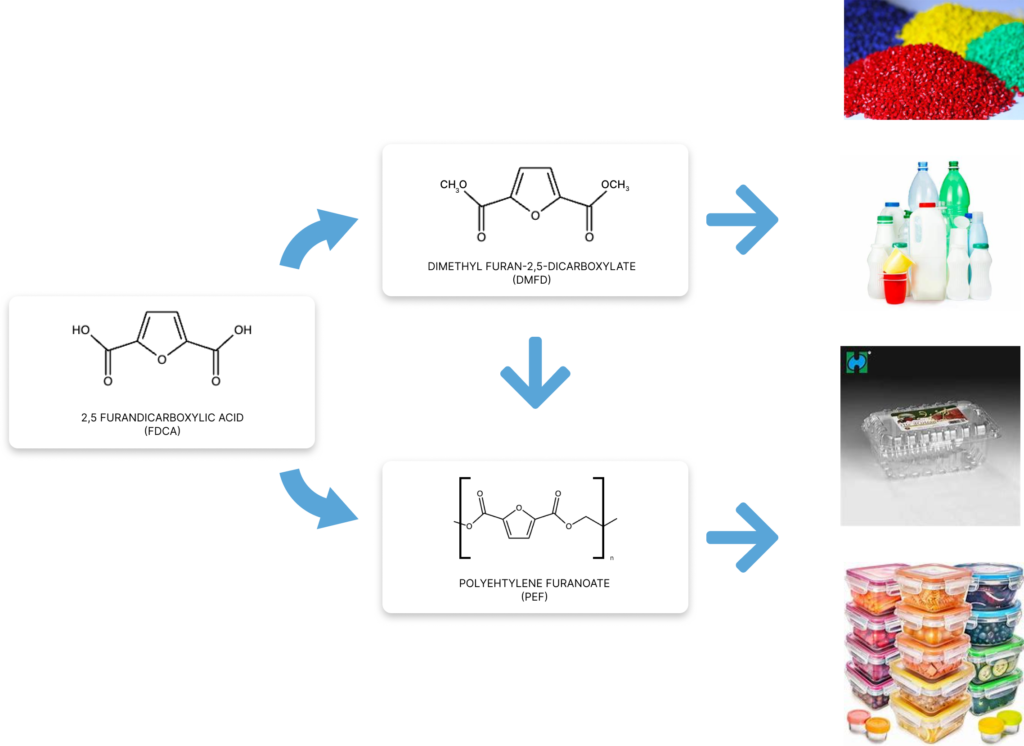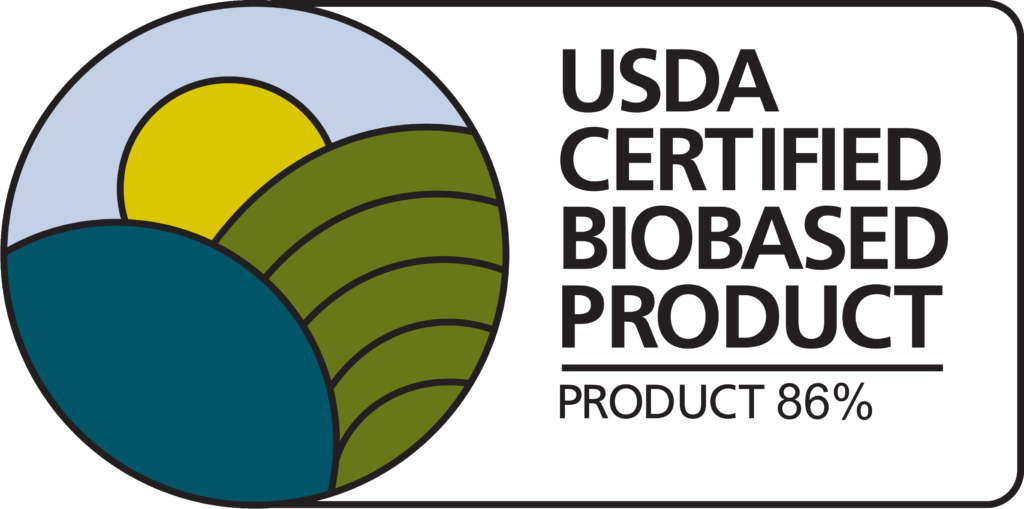FDCA Technology
Sustainable, Green Chemistry for a Circular Economy
Our FDCA (furandicarboxylic acid) production technology embodies the future of sustainable materials. By transforming non-edible biomass wastes into valuable building block chemicals, we are pioneering a greener approach to creating high-performance plastics and polyesters that reduce environmental impact.
Opportunity
KSE Solution


FDCA has broad application to numerous ester and polyester forms for applications in bottles, containers, plasticizers, textiles, etc.

FDCA and PEF Powering Sustainable Solutions
From eco-friendly packaging to high-performance polyesters, FDCA and PEF are revolutionizing industries with their bio-based, and high-performance properties, offering a greener alternative to traditional materials. FDCA has broad application to numerous ester and polyester forms for applications in bottles, containers, plasticizers, textiles, etc.

Cost Advantage
Derived from biomass wastes instead of expensive, volatile petroleum feedstocks

Decarbonizing
Leveraging circular biogenic sources of carbon from plants and trees coupled with captured waste carbon dioxide

Fully Recyclable
Either standalone or blending with petroleum plastics reducing pollution
Thermo-mechanical Advantages
Higher barrier properties, higher heat resistance for improved packaging material performance

Healthier
Furan-based chemicals have significantly lower endocrine impacts versus petroleum phthalates

USDA Bio-Based Certified
Join Us in Building a Sustainable Future
Discover how our technology can help your business reduce costs, enhance performance, and lower environmental impact.
